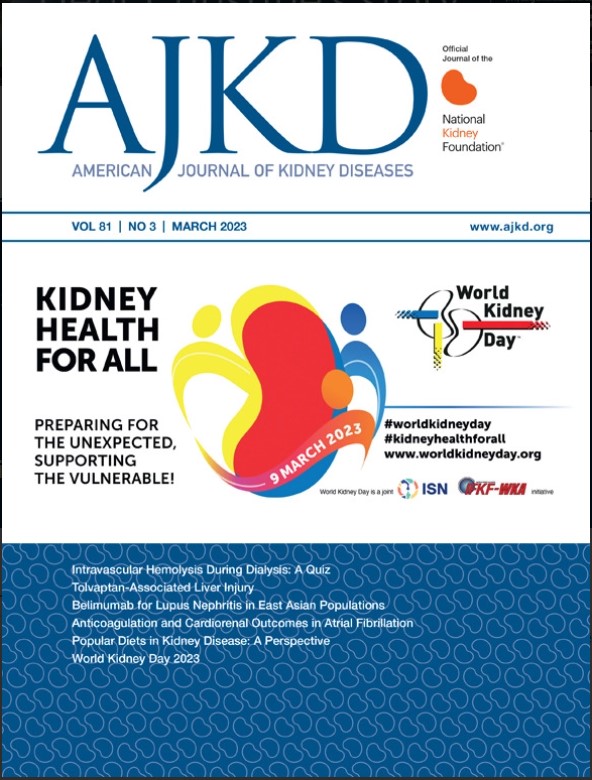肾移植排斥反应的生物标志物
IF 9.4
1区 医学
Q1 UROLOGY & NEPHROLOGY
引用次数: 0
摘要
无论是功能稳定的(亚临床)排斥反应还是明显的临床排斥反应,同种免疫损伤都是导致长期肾移植失败的主要原因。这些损伤可能由免疫细胞(细胞排斥)或同种抗体(抗体介导的排斥)介导。需要及早识别免疫损伤,以便及时采取适当干预措施,维持移植物的功能活力。然而,由于对排斥反应的敏感性和特异性有限,传统的肾功能测量方法(即血清肌酐)不足以进行免疫监测。因此,需要能更灵敏地检测肾脏异体移植免疫反应的生物标志物。最近,一些生物标志物已被临床应用于肾移植受者的护理中。这些生物标志物试图实现多种目标,包括:(1)更灵敏地检测临床和亚临床排斥反应;(2)预测即将发生的排斥反应;(3)监测治疗反应是否充分;以及(4)促进个性化免疫抑制。在这篇综述中,我们总结了迄今为止商业化生物标记物的研究成果,以及即将临床应用的生物标记物。在讨论这些生物标志物的分析和临床有效性的同时,我们也指出了生物标志物广泛应用所面临的挑战和局限性,包括需要在生物标志物指导下进行前瞻性研究,以确立这些新检测方法的临床实用性证据。本文章由计算机程序翻译,如有差异,请以英文原文为准。
Biomarkers of Rejection in Kidney Transplantation.
Alloimmune injury is a major cause of long-term kidney allograft failure whether due to functionally stable (subclinical) or overt clinical rejection. These episodes may be mediated by immune cells (cellular rejection) or alloantibody (antibody-mediated rejection). Early recognition of immune injury is needed for timely appropriate intervention to maintain graft functional viability. However, the conventional measure of kidney function (i.e., serum creatinine) is insufficient for immune monitoring due to limited sensitivity and specificity for rejection. As a result, there is need for biomarkers that more sensitively detect the immune response to the kidney allograft. Recently, several biomarkers have been clinically implemented into the care of kidney transplant recipients. These biomarkers attempt to achieve multiple goals including (1) more sensitive detection of clinical and subclinical rejection, (2) predicting impending rejection, (3) monitoring for the adequacy of treatment response, and (4) facilitating personalized immunosuppression. In this review, we summarize the findings to date in commercially available biomarkers, along with biomarkers approaching clinical implementation. While we discuss the analytical and clinical validity of these biomarkers, we identify the challenges and limitations to widespread biomarker use, including the need for biomarker-guided prospective studies to establish evidence of clinical utility of these new assays.
求助全文
通过发布文献求助,成功后即可免费获取论文全文。
去求助
来源期刊

American Journal of Kidney Diseases
医学-泌尿学与肾脏学
CiteScore
20.40
自引率
2.30%
发文量
732
审稿时长
3-8 weeks
期刊介绍:
The American Journal of Kidney Diseases (AJKD), the National Kidney Foundation's official journal, is globally recognized for its leadership in clinical nephrology content. Monthly, AJKD publishes original investigations on kidney diseases, hypertension, dialysis therapies, and kidney transplantation. Rigorous peer-review, statistical scrutiny, and a structured format characterize the publication process. Each issue includes case reports unveiling new diseases and potential therapeutic strategies.
 求助内容:
求助内容: 应助结果提醒方式:
应助结果提醒方式:


